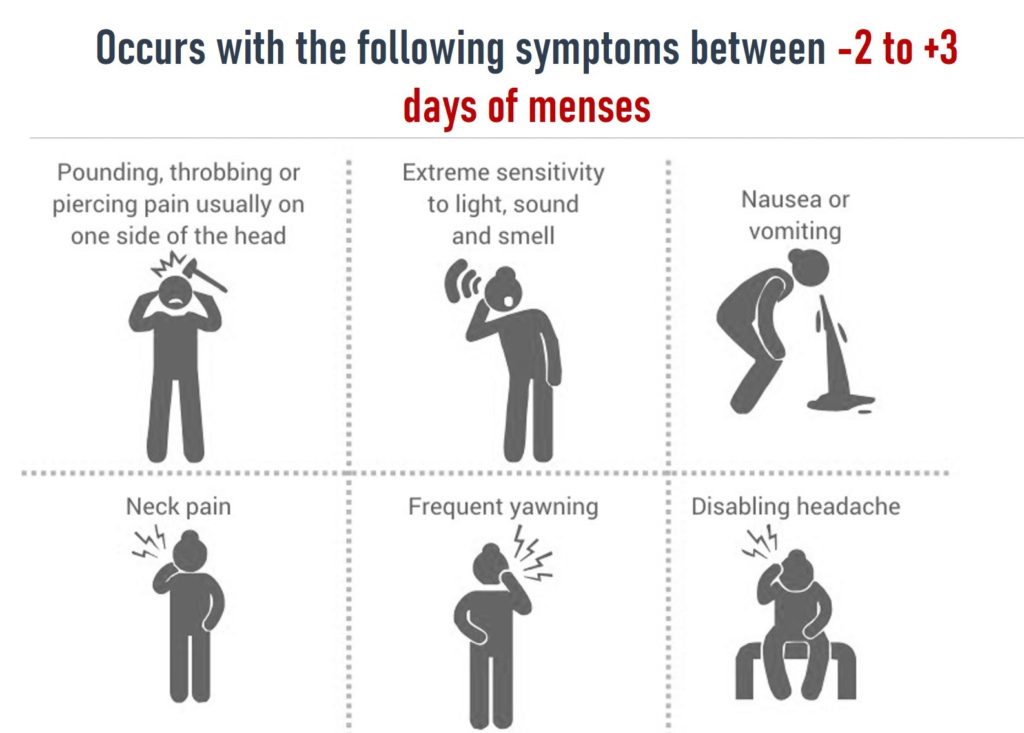Menstrual Migraines: Causes
So, ladies, have you ever experienced those unbearable migraines during your menstrual cycle? You're not alone. Many women suffer from what's known as menstrual migraines. These debilitating migraines can leave you feeling helpless and frustrated. But, don't worry, we've got your back. In this article, we'll help you understand what menstrual migraines are, why they occur, and how to prevent them.
Understanding Menstrual Migraines
Menstrual migraines are migraines that occur during the menstrual cycle. They typically start a few days before your period begins and last for a few days after the start of your period. Menstrual migraines are more intense and last longer than regular migraines. They can be accompanied by other symptoms like nausea, vomiting, and sensitivity to light and sound.

What is Menstrual Migraine?
Menstrual migraines are triggered by the changes in hormones, specifically estrogen and progesterone, that occur during your menstrual cycle. These hormone changes can cause inflammation and blood vessels in the brain to expand and contract, leading to a migraine.
:max_bytes(150000):strip_icc()/what-is-a-menstrual-migraine-1719930-5c93bdb0c9e77c000149e4b1.png)
Importance of Managing Menstrual Migraines
Menstrual migraines can have a significant impact on your quality of life. They can make it difficult to perform daily tasks and can interfere with work and social activities. Proper management of menstrual migraines can help reduce the frequency and intensity of the migraines, allowing you to live a more fulfilling life.
Statistics on Menstrual Migraines
Menstrual migraines affect up to 60 percent of women who suffer from migraines. They are most commonly experienced by women in their 30s and 40s. Women who have a history of migraines before their menstrual cycle are more likely to experience menstrual migraines.
Types of Menstrual Migraines
There are two types of menstrual migraines: pure menstrual migraines and menstrual-related migraines. Pure menstrual migraines occur during the menstrual cycle and have no other triggers. Menstrual-related migraines occur during the menstrual cycle but can also be triggered by other factors like stress, lack of sleep, or changes in diet.
Risk Factors for Menstrual Migraines
Women who have a history of migraines before their menstrual cycle are more likely to experience menstrual migraines. Other risk factors include smoking, obesity, and a family history of migraines.
Recognizing Early Symptoms of Menstrual Migraines
Early symptoms of menstrual migraines include mood changes, fatigue, food cravings, and neck stiffness. Recognizing these early symptoms can help women manage their menstrual migraines more effectively.
Diagnostic Tests for Menstrual Migraines
There are no specific diagnostic tests for menstrual migraines. Women who experience migraines during their menstrual cycle should keep a diary to track the frequency and intensity of their migraines. This information can help their healthcare provider determine the best course of treatment.
Awareness and Prevention of Menstrual Migraines
Women who suffer from menstrual migraines should avoid triggers like stress, lack of sleep, and certain foods. They should also talk to their healthcare provider about hormone management therapy or other treatment options.
Early Detection of Menstrual Migraines
Early detection of menstrual migraines is important for proper management. Women should keep a diary to track the frequency and intensity of their migraines. They should also recognize early symptoms and seek medical attention if necessary.
Timely Treatment of Menstrual Migraines
Timely treatment of menstrual migraines can help reduce the frequency and intensity of the migraines. Women who suffer from menstrual migraines should talk to their healthcare provider about options like over-the-counter pain relievers, prescription medications, and hormone management therapy.
Support and Resources for Menstrual Migraines
If you suffer from menstrual migraines, know that you are not alone. There are many resources available to help you manage your migraines and live a more fulfilling life. Talk to your healthcare provider for more information about support groups, online resources, and other options.

So, there you have it, ladies. Understanding, recognizing, and managing menstrual migraines is possible. Don't let these debilitating migraines control your life. Take control today and talk to your healthcare provider about options for managing your menstrual migraines.

Remember, prevention is key. Take care of yourself by avoiding triggers, getting enough sleep, and eating a healthy diet. With proper management, you can live a life free from the pain and frustration of menstrual migraines.

Komentar
Posting Komentar